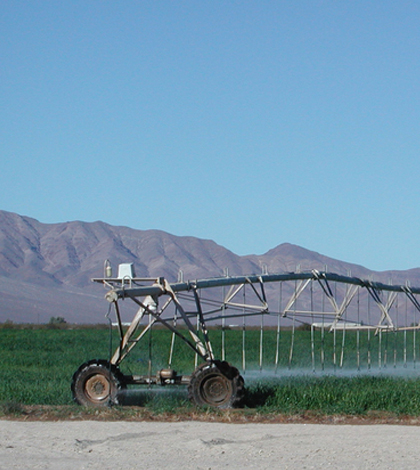Climate Change May Cause Western Groundwater Deficits

Irrigation in the Amargosa Desert uses water from the Death Valley Region Aquifer. (Photo courtesy of David Stonestrom / U.S. Geological Survey)
With persistent drought conditions, things haven’t looked good for groundwater supplies in the western United States for some time. But the effects of climate change will very likely make things worse for four aquifers in the region, according to a new report led by scientists at the University of Arizona.
The report was based on knowledge from 16 experts in climate change and hydrology in the western United States. The U. of Arizona scientists also considered multiple existing studies and current knowledge of how the groundwater recharge process works. They found a lack in predictions covering regional portions of the U.S. West, but plenty that covered global and local areas.
The researchers zeroed in on eight economically important aquifers for which groundwater budgets were available. Only four of those had climate model estimations for how they could be affected by changes in the future. To account for that inconsistency, the scientists developed a uniform classification scheme covering different components of groundwater recharge. These efforts showed that four of the aquifers will likely have groundwater deficits by the year 2050.
Full results of the study are published online in the Journal of Hydrology.
Top image: Irrigation in the Amargosa Desert uses water from the Death Valley Region Aquifer. (Photo courtesy of David Stonestrom / U.S. Geological Survey)





0 comments